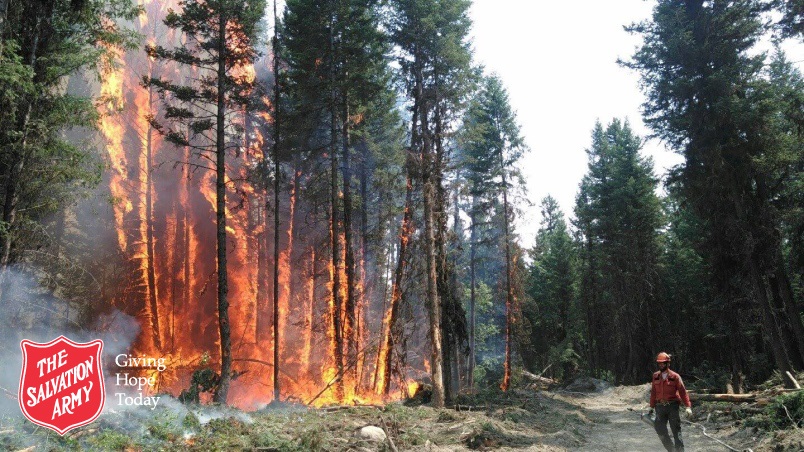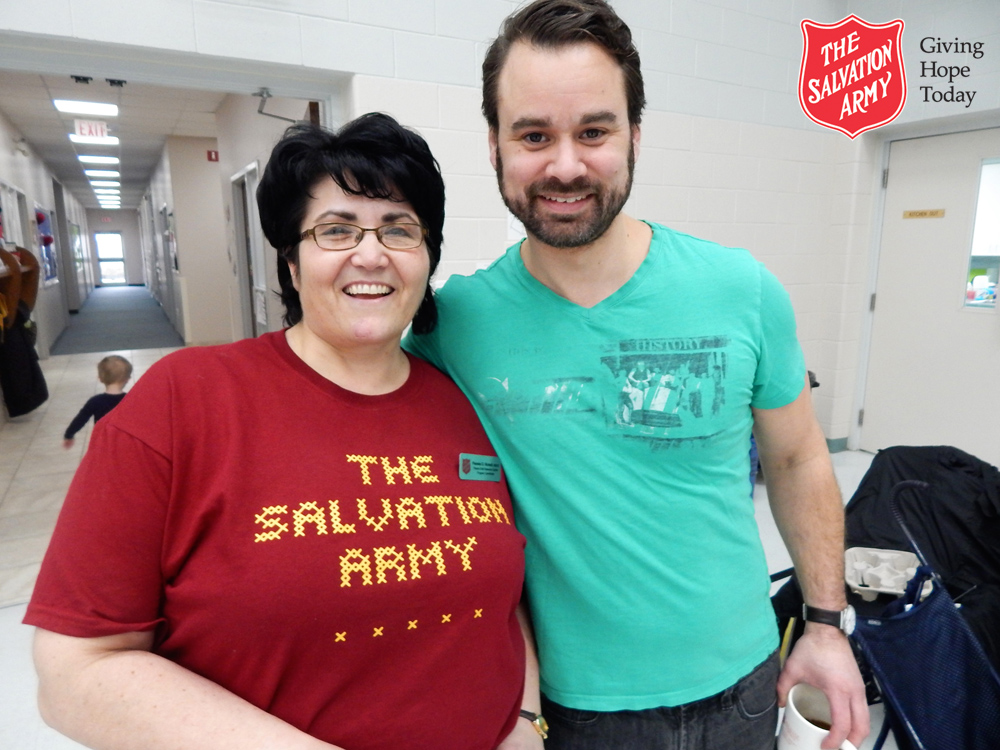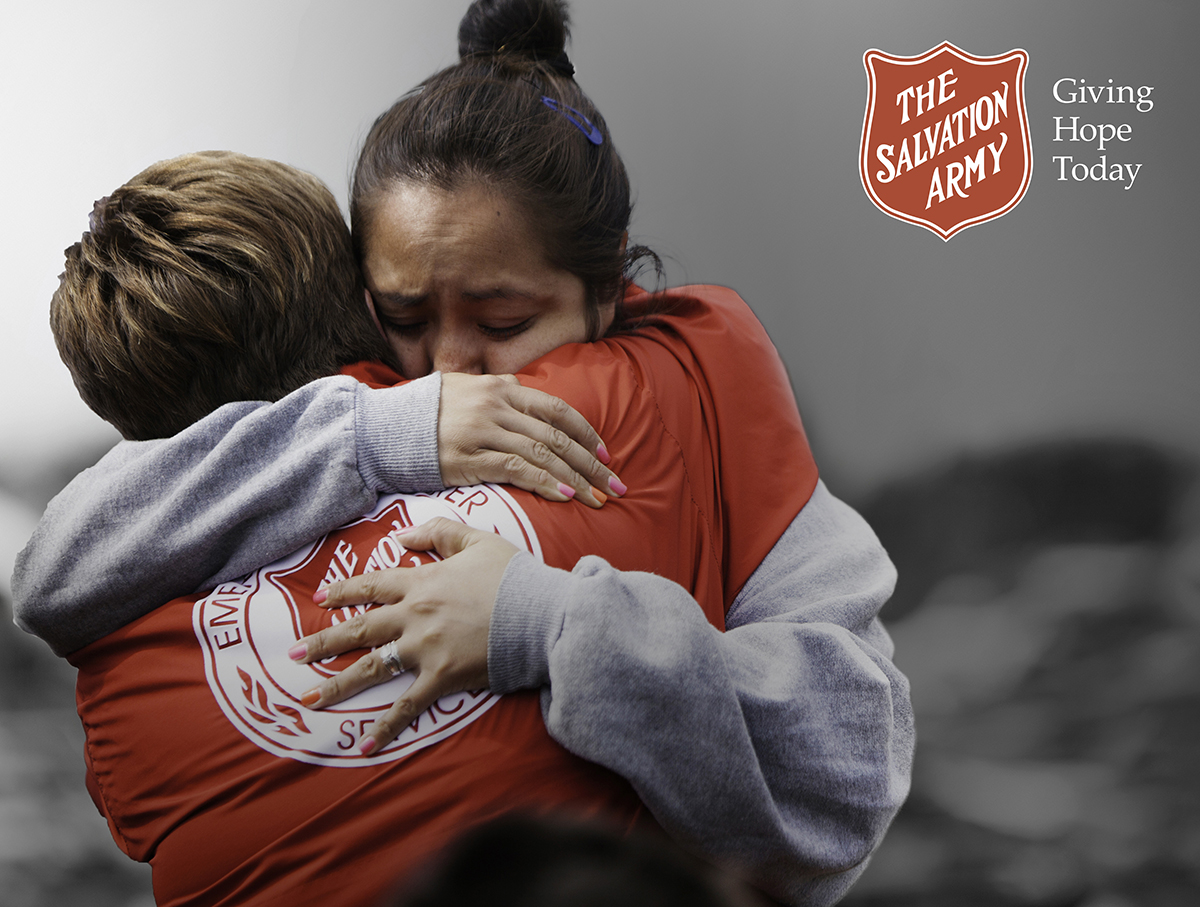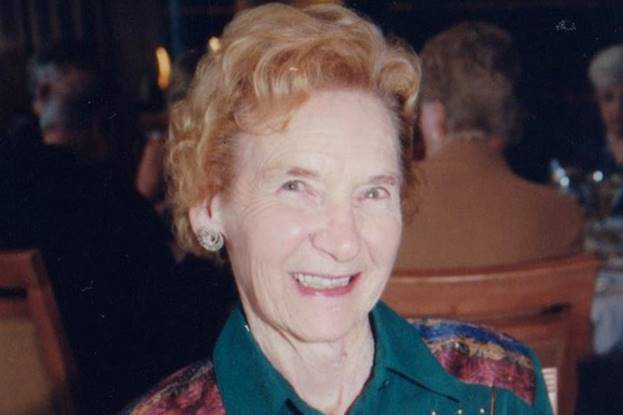The Salvation Army Responds as Fires Rage

With much of the northern hemisphere coping with high temperatures and long dry spells, wildfires are affecting communities from Greece right up to the Arctic Circle, claiming dozens of lives and damaging ecosystems, homes, livelihoods and infrastructures. The Salvation Army is responding in a variety of ways, according to local needs and in partnership with other agencies.
The world leader of The Salvation Army, General André Cox, is conscious that ‘the heatwave is creating chaos, fear, evacuations and loss’ and calls Salvationists and friends to prayer. He writes: ‘Those on the front lines need our support and those affected need our prayers.’
Extreme heat affects everyone, but the risks are greater for young children, pregnant women, older adults, people with chronic illnesses and the homeless.
In British Columbia, Canada, 18 emergency community response units – equipped with stoves, fridges and grills – are on standby after fires affected communities around the Okanagan. More than 200 homes are subject to evacuation orders after fires blazed through dry scrubland. ‘We are uniquely positioned to respond quickly in times of crisis,’ explains Mike Leland of The Salvation Army.
‘Our priority is providing those being impacted with practical and emotional support to help see them through devastating circumstances.’
Across Canada, The Salvation Army is responding to rising summer temperatures by setting up cooling centres and distributing water. ‘We want to make sure there’s a place for people to sit inside if they need to just cool off, get some water and get hydrated, and make sure they’re not out in the hot sun and heat all day,’ spokesperson Major Rob Kerr explains. ‘Anything we can do to alleviate the conditions, we are going to do.’



